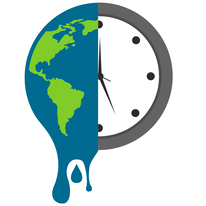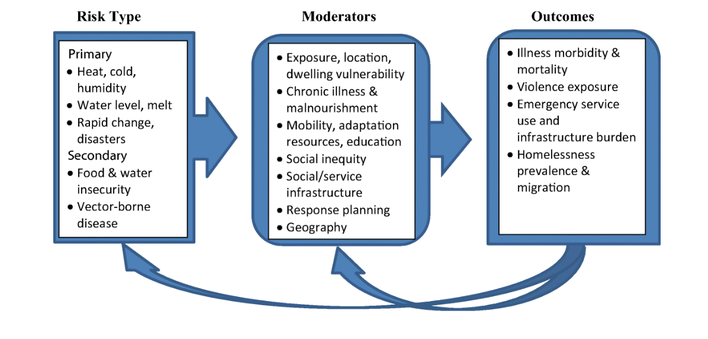|
By Zeff Worley AmeriCorps S&N It’s no secret that climate change is here to stay. This past June was the country’s hottest in 127 years. A record-shattering heat wave in the Pacific Northwest brought Portland to 116 °F and killed at least one billion sea creatures on the coast. The United Nations’ most recent published study on the effects of climate change puts it in stark terms: “It is unequivocal that human influence has warmed the atmosphere, ocean and land.” If intergovernmental policy does not adequately limit greenhouse gas emissions sooner rather than later, then the world will continue to heat up at an unprecedented rate. But while climate change undoubtedly affects every human being on earth, experiential inequality persists. In particular, the Global South will bear the brunt of climate change, harrowed by drought, sea level rise, and internal disruption, even though the most industrialized countries in the world - such as the United States and the European Union - are responsible for 90% of excess global carbon dioxide (CO2) emissions. And as more and more of the world becomes uninhabitable due to increasing desertification or extreme weather events, the number of precariously-housed climate refugees will only swell; the Brookings Institute estimates that nearly 25 million people fled their homes because of “‘sudden onset’ weather events” in 2017 alone. Hundreds of thousands of additional refugees per year are expected to seek asylum in the European Union because of climate change, which in turn will further bolster the dangerous and xenophobic right-wing populist movements which have swept Europe in the last decade, championed by leaders such as Viktor Orbán, Andrzej Duda, and Boris Johnson. It is clear that climate change poses a particular risk for those experiencing homelessness and housing instability because of their lacking guaranteed protection from the weather. A 2020 review of scientific literature on the intersection of climate change and homelessness identified temperature extremes, inclement weather events, and exacerbated chronic health conditions as some of the key issues facing people experiencing homelessness in an increasingly hotter world. In particular, the risk of death due to heat is “increased for those with psychiatric disabilities, alcoholism, and cognitive impairment,” all of which are prevalent within the homeless population (the Department of Housing and Urban Development found in 2015 that at least 25% of the United States’ homeless population suffered from a severe mental illness). Furthermore, those experiencing homelessness were identified as being particularly vulnerable to climate-induced food insecurity and less able to access social resources and assistance. Adverse weather is correlated with an increased incidence in mental illness and addiction diagnosis - wet and cold days in particular are linked to an uptick in reported mental and physical suffering. Sleeping rough, a reality for many experiencing homelessness, will become increasingly untenable as rain, fire, heat, and flood make it an impossibility; it is a legislative and societal responsibility to solve this problem rather than once again sweeping it under the rug through “ticket-out” programs, the free market, or apathy. Climate change will prove to be (and already is) particularly cruel to society’s least-advantaged groups, such as those experiencing poverty and homelessness and ,persons of color. Addressing climate change not only means taking steps to save the earth, but also to remedy the environmental racism and social ills inflicted upon vulnerable populations. Writing to your congressional representative and urging them to address the link between climate change and homelessness is just one first step out of many - researching advocacy groups in your neighborhood or city, engaging in mutual aid, and joining protests are all powerful ways to make your voice heard and bring these all-too-often obscured problems to light. Together, we can address both homelessness and climate change, and make sure that our collective future is more sustainable, equitable, and, perhaps most importantly of all, inhabitable. An infographic showing the relationship between experiencing homelessness and climate change (Kidd, Greco, McKenzie).
1 Comment
abbey
11/8/2021 10:20:23 am
this is a great way to help kids in the town
Reply
Leave a Reply. |
BLogArchives
July 2024
Categories |
©2022 Chicago HOPES for Kids. All Rights Reserved.
Website by Gumbo Media
Website by Gumbo Media



 RSS Feed
RSS Feed
